


Biosecurity Minister Andrew Hoggard has announced reforms to strengthen New Zealand’s biosecurity laws, aiming to protect the NZ$61.4 billion food and fibre export sector. Key changes include higher fines for undeclared high-risk goods, flexible import health standards, faster pest management approvals, and targeted compensation for incursions. The reforms follow public consultation and aim to deter risky behaviour while supporting trade and innovation. Biofouling controls beyond territorial waters will not proceed. A draft bill is expected next year, reinforcing the Government’s commitment to strong borders and safeguarding economic growth.
At the 36th APEC Ministerial Meeting in Korea, Hong Kong's Secretary For Commerce and Economic Development Algernon Yau highlighted Hong Kong’s commitment to digitalisation and AI integration to drive inclusive economic growth. He outlined initiatives including advanced data infrastructure, SME digital transformation, and AI-enhanced trade systems. Emphasising a people-centred approach, Yau noted efforts to bridge digital divides and support workforce reskilling. He reaffirmed Hong Kong’s support for the WTO’s rules-based trading system and stressed the importance of resilient supply chains. Yau held bilateral talks with New Zealand's Minister for Trade and Investment Todd McClay.
Effective 1 November 2025, Hong Kong’s STV Scheme has expanded from 12 to 17 sectors, allowing more non-local talent to join short-term activities without employment visas. New sectors include Environment, Occupational Safety and Health, Maritime, Think Tanks, and others, with over 490 authorised organisations. Participants may stay up to 14 days and receive remuneration, provided activities support policy goals and don’t displace local workers. Since its 2022 launch, over 38,000 individuals have benefited, contributing to major events and reinforcing Hong Kong’s role as a “super connector” under “one country, two systems.” Safeguards remain to prevent abuse and ensure policy alignment.
Hong Kong’s new licence fee structure for electric private cars (e-PCs) took effect on 1 November 2025, with a four-month grace period for existing vehicle licence (VL) renewals. Fees are tiered by rated power, ranging from HK$1,500 (≤75 kW) to HK$5,000 (>225 kW). Most e-PCs fall within the lower three tiers. Disabled owners receive concessions, including full fee waivers for vehicles ≤75 kW. VLs expiring on or before 28 February 2026 may renew under current rates. The new structure aims to balance EV promotion with regional alignment and technological progress.
Guangzhou Baiyun International Airport has officially launched its fifth runway, becoming China’s first civil airport with five commercial runways. As a core hub in the Greater Bay Area’s airport cluster, the expanded facility (see below) will support up to 140 million passengers and six million tonnes of cargo annually. The five-year, CNY53.77 billion project includes a major integrated transport center linking six high-speed rail lines, five intercity railways, two metro lines and two expressways - enabling one-hour access to other regional airports. The Greater Bay Area now hosts seven airports serving over 200 global destinations and 200 million passengers annually.
Chinese President Xi Jinping announced that Shenzhen will host the APEC Economic Leaders’ Meeting in November 2026, marking China’s third time as host. He praised Shenzhen’s transformation into a global metropolis and symbol of China’s opening-up strategy. Xi expressed hope that leaders will gather to shape Asia-Pacific’s future. Participating economies endorsed China’s hosting and vision, anticipating a successful “China Year” that will enhance regional cooperation and shared prosperity.
The China Council for the Promotion of International Trade (CCPIT) will host the APEC CEO Summit in 2026. At the 2025 summit’s closing ceremony, CCPIT Chairman Ren Hongbin invited Asia-Pacific business leaders to attend the 2026 summit and the 4th China International Supply Chain Expo. He called for deeper regional connectivity to foster an open, resilient, and peaceful Asia-Pacific community. The 2025 summit, themed “Bridge, Business, Beyond,” drew over 1,000 political and business leaders who discussed regional integration, AI, digital innovation, global finance, and biomedicine. CCPIT also led a delegation of over 100 Chinese enterprises to the event.

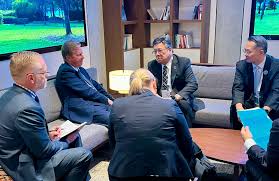
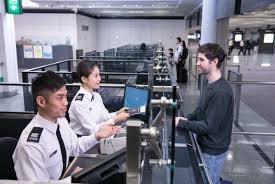
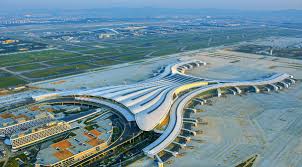
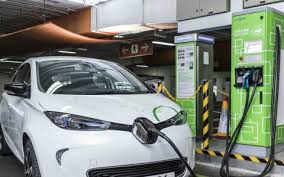
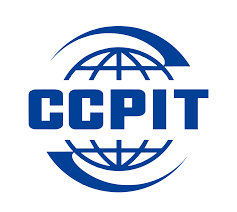
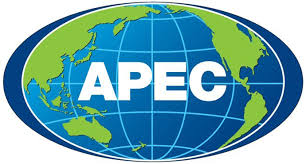
China Eastern Airlines has launched a new twice-weekly Shanghai–Auckland–Buenos Aires route, expanding its daily Shanghai–Auckland service and linking Asia with South America via New Zealand. Tourism Minister Louise Upston hailed the milestone for boosting air connectivity, tourism, and trade, positioning Auckland Airport as a growing international hub vital to New Zealand’s economic future. She emphasised the government’s focus on surpassing pre-2019 tourism levels. Immigration Minister Erica Stanford highlighted streamlined transit for Chinese visitors via NZeTA and stressed that responsive immigration policies are central to strengthening New Zealand’s economic growth and global gateway role.
Trade and Investment Minister Todd McClay has officially launched Invest New Zealand, a dedicated agency to boost foreign investment. With FDI at 37% of GDP versus the OECD’s 53%, InvestNZ will target projects from NZ$20m - NZ$1b, connect local and global investors, and advise on policy to enhance competitiveness. Six strategic growth areas include infrastructure, renewables, data, AI, advanced tech (AgTech, MedTech, SpaceTech) and manufacturing. McClay also unveiled prospectuses in tourism, wood processing and innovative food production, showcasing New Zealand’s competitive edge and signaling readiness to scale opportunities for stronger businesses, jobs and economic growth.
Trade and Investment Minister Todd McClay announced inaugural board appointments for Invest New Zealand, established in July 2025 to attract high-quality foreign investment. Chaired by Rob Morrison with Carmel Fisher as deputy, members include David Tapsell, Richard Hedley, Mary MacLeod and Ross George. The agency works with multinationals and Active Investor Plus Visa applicants to bring capital, skills, and businesses to New Zealand. McClay thanked establishment board members Charles Finny and Catherine Savage, expressing confidence the new board will drive innovation, growth, and jobs, ensuring strong leadership to secure the investment New Zealand needs for its economic future. Robert Wall will be joining Invest New Zealand as its inaugural chief executive.
During China’s 14th Five‑Year Plan (2021‑2025), its green energy transition accelerated rapidly, with renewables supplying one‑third of electricity. Installed renewable capacity rose from 40% to 60%, led by wind and solar, which grew from 530 million kW in 2020 to 1.68 billion kW by mid‑2025. Their share of consumption nearly doubled to 18.6%. China now leads globally in patents, energy storage (95 million kW), and hydrogen (36 million tonnes, over half from renewables). Looking to 2026‑2030, priorities include optimizing utilization, expanding non‑electric applications like hydrogen and heating, and advancing integration technologies.
China renovated 25,100 old urban residential communities in the first 10 months of 2025, surpassing its annual target of 25,000, with 16 regions meeting goals. From 2019–2024, about 280,000 communities were upgraded, benefiting 120 million people. Renovations included 360,000 km of pipelines, 3.87 million parking spaces and 78,000 elderly or childcare facilities. The Central Urban Work Conference emphasized urban renewal as a tool to optimise city structures, drive growth, enhance quality of life, promote green development, preserve heritage and improve governance efficiency.
Open banking has launched in New Zealand under the Customer and Product Data Act 2025, promising faster loan approvals, easier budgeting and secure data sharing. Commerce Minister Scott Simpson says it enables safe bank switching, streamlined mortgage applications, and innovative low-cost payment tools for consumers and small businesses. Accredited fintechs, verified by MBIE, can access customer data with explicit consent, ensuring security. The regulations align with global best practice, fostering competition and innovation in financial services. Simpson urges fintechs to apply quickly, highlighting opportunities for new apps and services that traditional banks have been slow to deliver.
The Government is reducing non-tariff barriers worth NZ$600 million to boost Kiwi exports, jobs and growth. Recent actions include unlocking China’s NZ$200m cosmetics market, a NZ$64.5 million deer velvet deal, easing flows through Mexico and expanding dairy and blueberry access to Korea. Exports surpassed NZ$100 billion for the first time, with food and fibre at NZ$60 billion. Trade missions and new agreements, including with the UAE and GCC, have unlocked NZ$2 billion potential. With exports up 10% to NZ$108.8 billion in June 2025, Ministers Willis and McClay say strong trade access underpins confidence, jobs, and the goal of doubling exports in 10 years.
New Zealand has joined the Minerals Security Partnership (MSP) to attract investment and strengthen global supply chains. Resources Minister Shane Jones said the move supports the Minerals Strategy goal of doubling mineral exports by 2035. Critical minerals are vital for renewable energy and digital technologies, and New Zealand’s resources and firms are well placed to contribute. Foreign Minister Winston Peters highlighted the partnership’s role in creating high-paying regional jobs and enhancing international ties. With 37 minerals identified on New Zealand’s Critical Minerals List, MSP membership is expected to unlock financing opportunities and boost the nation’s global economic impact.
The Hong Kong Government reported revenue of HK$292.4 billion and expenditure of HK$438.9 billion from April to October 2025, resulting in a deficit of HK$56.8 billion after bond issuance and repayments. The shortfall reflects timing, as major revenues like salaries and profits taxes arrive later in the year. Fiscal reserves stood at HK$597.5 billion, while government debt totaled HK$392.3 billion and guarantees HK$115.7 billion. Financing was mainly domestic, with banking sector inflows. Bond programmes include green, infrastructure, and silver bonds, supporting long term investment. The Future Fund holds HK$249.8 billion for strategic use through 2030.









The Government has announced the creation of the Ministry of Cities, Environment, Regions and Transport (MCERT), merging Environment, Housing and Urban Development, Transport, and local government functions into one agency. Ministers say MCERT will tackle housing affordability, infrastructure deficits, and climate adaptation by integrating planning, land use, housing, transport, water, and local government reform. The new “one stop shop” aims to reduce duplication, improve coordination and deliver clearer accountability. MCERT will drive growth, lift living standards and provide integrated advice for communities. A Chief Executive will be appointed in early 2026, with the Ministry fully operational by July 2026.

The Government will update health and safety regulations for the hydrogen sector to support growth and innovation. Energy Minister Simon Watts says hydrogen can drive jobs, reduce emissions in hard-to-electrify sectors and position New Zealand as a leader in sustainable energy. Workplace Relations Minister Brooke van Velden notes current rules hinder safe hydrogen development. Ten changes include requirements for fuelling stations, cryogenic hydrogen, easier appliance approvals, alternatives to odorisation, use of Multi-Element Gas Containers and updated standards. These reforms, part of the Hydrogen Action Plan, aim to cut red tape, boost investment and deliver economic and climate benefits.

New Zealand and India have concluded a landmark Free Trade Agreement granting unprecedented access to India’s 1.4 billion person market, to be signed in the first half of 2026. The deal removes or reduces tariffs on 95% of New Zealand exports, with 57% duty free immediately and 82% once fully implemented. The remaining percentage subject to sharp tariff cuts. Key gains include immediate tariff elimination for sheep meat, wool, coal and most forestry products, major access for horticulture, seafood, industrial goods, wine, mānuka honey and dairy ingredients, plus MFN protections. The FTA also expands services access, establishes Geographical Indication rules and creates limited skilled visa pathways. Government expects billions in new exports, stronger competitiveness and accelerated export growth goals.
The Hong Kong Monetary Authority, together with the Commerce and Economic Development Bureau and the Intellectual Property Department, has launched the new IP Financing Sandbox to help pilot sectors leverage patents, trademarks and copyrights for financing. The Sandbox provides a controlled environment for banks, valuation experts and legal professionals to test end to end IP backed lending arrangements. It aims to build banks’ practical experience and expand financing options for innovative, IP rich SMEs lacking traditional collateral. Three major banks have joined as inaugural participants and are engaging clients from biotechnology, electronics and technology sectors for pilot IP financing trials.


The Health Bureau announced the establishment of the Real World Study and Application Centre and the launch of the GBA Clinical Trial Collaboration Platform under the GBA International Clinical Trial Institute, strengthening coordinated biomedical development in the Greater Bay Area. The new centre will integrate Hong Kong’s medical data and real world evidence generated under cross boundary drug use arrangements to accelerate R&D, registration and market entry of innovative drugs and devices. With multicentre studies already planned, the initiatives aim to position Hong Kong as an international hub for real world research, streamline GBA clinical trial collaboration, enhance data connectivity, and support advanced therapy development and investment attraction.

South China’s Hainan Free Trade Port has launched a plan to build zero carbon industrial parks, prioritising qualified zones for low and zero carbon transformation. The strategy centres on developing renewable energy infrastructure - integrating wind, solar, biomass and nuclear power, expanding energy storage, enabling direct green power use and deploying smart microgrids. Industries are encouraged to adopt carbon reduction technologies such as CCUS and advance research on new materials and future energy. The plan also targets green manufacturing, energy efficient buildings, low carbon transport and smart carbon management systems. Separately, China has introduced island wide special customs measures in Hainan to expand zero tariff access and ease trade.

China will host the 33rd APEC Economic Leaders’ Meeting in Shenzhen on November 18–19, 2026, alongside the APEC CEO Summit and joint foreign and trade ministers’ meeting. During the 2026 “China Year,” about 300 events will be held nationwide. Senior Officials’ Meetings are scheduled in Guangzhou, Shanghai and Dalian, while around 10 sectoral ministerial meetings will address trade, digital economy, transport, tourism, SMEs, energy, food security, finance and women’s affairs. Foreign ministry spokesperson Guo Jiakun said all parties support China’s arrangements and are committed to ensuring fruitful outcomes from the year-long program of activities.

China’s Ministry of Industry and Information Technology and the People’s Bank of China has issued a notice to strengthen green finance mechanisms supporting green factories. With over 6,430 national-level green factories contributing more than 20% of manufacturing output, the policy encourages financial institutions to expand investment in energy conservation, low-carbon development, water efficiency and environmental protection. Support will target R&D, industrialisation, technological upgrades and zero-carbon factory projects. Plans include boosting green credit, widening financing channels, and enabling qualified enterprises to issue green and transition bonds, reinforcing green manufacturing as a driver of sustainable industrial growth.

The Environment and Ecology Bureau’s Working Group approved four new hydrogen trial projects, including training facilities, a hydrogen extraction plant, site power generation and hydrogen fuel cell vehicles. This brings approvals to 32 projects. The Government’s 2024 Hydrogen Strategy emphasises legislation, standards, market alignment and prudence, reinforced by the Gas Safety (Amendment) Ordinance 2025. Subsidiary legislation regulating hydrogen is planned for 2026. A hydrogen certification scheme is targeted for 2027, alongside Hydrogen Week 2026 and APEC’s first Clean Hydrogen Convention. These initiatives aim to build a safe, orderly framework for Hong Kong’s hydrogen energy development.

Minister of Internal Affairs Brooke van Velden urges New Zealanders to check passport expiry dates, with over 1.3 million set to expire in the next two years. The Department forecasts 622,000 renewals in 2026 and 759,000 in 2027, following the 2015 shift to 10 year validity. Van Velden highlights reduced processing times from 25 days in 2023 to just three days, ensuring faster service. She advises renewing early to avoid delays, especially for 2026 expiries. Passports can be renewed quickly and securely online at passport.govt.nz, helping families avoid travel disruptions.

New Zealand’s new visa-free pathway is driving a surge in Chinese travel, with over 13,000 visitors arriving in the first month. More than 24,000 NZeTA approvals add to the 240,000 Chinese and Pacific arrivals annually. Strong interest is seen in the South Island, where 43% of these travellers choose Christchurch and 22% Queenstown. Ministers highlight tourism’s vital role as New Zealand’s second-largest export, boosting jobs, regional economies, and hospitality. With Chinese New Year approaching, the policy makes it easier than ever for Chinese tourists to enjoy Kiwi hospitality and landscapes.

The Overseas Investment Amendment Act streamlines foreign investment approvals, requiring most decisions within 15 working days versus the previous 70. Associate Finance Minister David Seymour says this will boost capital inflows, productivity and wages, addressing New Zealand’s restrictive regime and weak capital-to-labour growth. LINZ has already cut processing times by 60%, handling 82.6% of applications in half the statutory timeframe. The Act replaces benefit and investor tests with a simplified national interest test, while farmland, fishing quota and residential land remain restricted. Investor visa holders may now buy homes worth NZ$5m+, encouraging capital, skills and economic growth.
